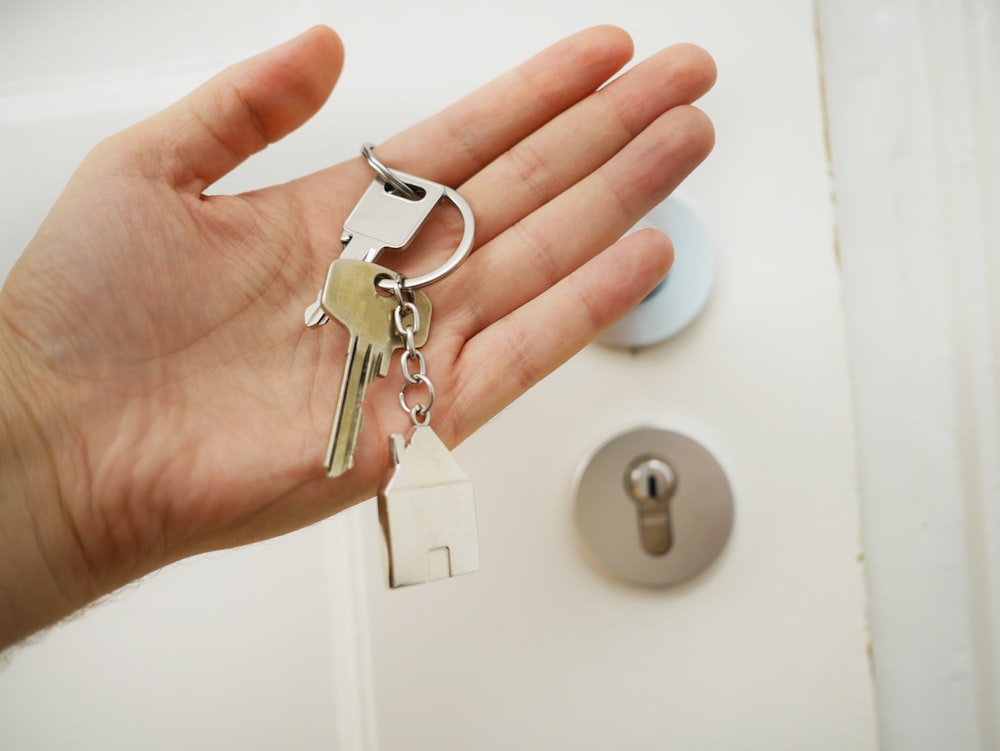The US economy is going through unprecedented times, with inflation rates among the world’s highest and repeated supply chain disruptions. With this much turmoil, many are considering downsizing their existing home to save money. But big question is “When is the right time to Downsize for YOU?” . And after you crunch the numbers, you can weigh pros and cons to see if selling a house fast to a cash buyer at a fair market value is right option or hiring a real estate agent.
As age increases, so does the capacity for a family to cope. It’s common for households to increase their homes when they grow in size. But what once was an ideal residence can now prove hard for you in the golden age. There is a great benefit to having a downsized property as it allows you to get on with a more successful life. But it’s incredibly hard to downsize, and leaving a home full of treasured memories can cause a great deal of pain. Lets walk together one of these many factors to see if Downsizing your for smaller home is right option for you or not.

What Is Downsizing?
Downsizing home refers to selling the larger current home or present property you reside in and purchasing a smaller home to live in instead.
Naturally, the smaller home will typically cost less to buy and maintain. Consequently, you can save all that extra money, and spend it elsewhere.
Many retirees and elderly folks whose children are adults and have moved out prefer saving money, downsizing your home, and buying a house (sometimes with cash) that suits their needs.
In other cases, it can be a significant money-saving opportunity on housing expenses. Some people even choose to move into a smaller place because of its location or because they want to have less maintenance and utilize the space better.
Therefore, it is no surprise that home downsizing is a fairly common practice and benefits cash buyers.
However 77% of older adults want to age in place and live comfortably by keeping a home, but many empty nesters are looking for a new job and are looking to downsize. A report released recently found that the “slow generation” – people age 75 or golden years or older or the generation ahead of Baby Boomer – makes up 24% of buyers who are seeking a smaller house. It is the baby boomer generation who sold their houses in 2020 and 2021, the highest of all the others.
How Do You Know It Is Time To Downsize?
Knowing just when to downsize your home can be admittedly tricky. If you wait too long, you might end up paying thousands of dollars to maintain a large property that ultimately does not fetch a high value.
Conversely, if you make home sale go too soon, you might not get as much cash for homes as you could.
Luckily, there are a few instances to enjoy life when you know it is the perfect time to sell your property. Here they are:
1. Monthly housing expenses have risen above 30%

The National Housing Authority states that no more than 30 percent of a person’s monthly income should be needed for housing. Paying 30% makes you “very financially burdened.”
And more than 60% makes you extremely burdened. Consequently, a major decrease in income can easily be attributed to salary reductions, retirement or job losses and this category can be easily slipped out.
This is a good indicator of moving to a smaller location with lower square footage with an affordable mortgage payment. This is crucial to prepare for the next step.
2. Maintenance Eats Away Your Spending Cash
Larger houses inevitably require more money and effort to maintain. Whereas this can be worthwhile when you need it and can afford it, it can quickly become a drain on your resources.
By downsizing, instead of paying extra to keep your home livable, you will be able to save potentially thousands of dollars every year instead.
If you want to retire comfortably, you must downsize when the right opportunity arises so you can save cash instead.
Many people do not realize this and continue paying exorbitant costs on their homes. Some even dip into their savings.
3. Home Maintenance gets out of control
Larger homes get old, too. And as they age, they require even more effort to keep up to date.

Short of a complete renovation, which can be quite a hassle, you will need to invest more money, more energy and time that you might want to redirect elsewhere.
So even if you can afford to keep a large house, you might not be fond of how hard you need to work to simply keep it livable.
For older people, this is especially an area of concern. By downsizing to a smaller house, you can ensure that even as it gets older, you will not need to spend as much time, money and energy for maintaining it as you would a big place.
Not to mention, you might be paying way lot of property taxes for big house that you actually do not need. Same goes for utility costs. Bigger the house, higher the utility bills.
4. Not Maximizing Space
The whole point of having a large home is that you might need all the extra space. But while that might fit your needs at a given moment or in past, your needs themselves can evolve.
As a result, a big home might not make sense after a while.
With time, your adult children might move out, and their bedrooms will become empty, unused spaces that you must maintain and pay tax and insurance on.
Your social life might evolve, and suddenly, a large backyard with a swimming pool might make little sense.
As such, your house has to keep up with your needs, and if you no longer require a swanky pad with multiple bedrooms, you may need to downsize your home.
5. Career or family no longer ties current location
A larger, costlier to maintain house might make sense if it is close to your job or in a city center while you are younger. But many people who downsize their homes are usually approaching retirement.
For them, being close to their place of work is no longer a priority. Nor does it make sense for them to willingly be the oldest people in their neighborhood since this would prevent them from finding a community.
This is why many retired individuals downsize and move to dedicated retirement communities.
These places will not only provide them with more adequately sized and shaped houses but will even give them a lifestyle changes along with peers they can relate to.
Since your career or lifestyle no longer demands you to live in a particular house, you will be able to pursue your passions in a cheaper home.
6. House Does Not Suit Your Needs
A larger and older house typically has its own set of challenges. For instance, the mere existence of stairs can make them unnavigable for elders with mobility restrictions.
Bathtubs and showers might lack grab bars, and storage spaces might be inaccessible. Long driveways can be a nuisance during winter because of all the snow that needs to be shoveled.
If you have outgrown your house, perhaps it is time to downsize and get a residence that is better aligned with your needs.
7. You want to be closer to family
Several retiree baby boomers opt for closer relationships. In fact, this group would move far more quickly after selling their house.
The trend towards living closer to family started before the pandemic and continues to this day. The silent generation meanwhile has the highest chance (53%) to buy a property near family or friends.
Jones says grandchildren are pivotal points. If young adults have difficulty affording a new property they could leave the state and follow their desire for their kids.
8. Incoming Market Turmoil For Home Owners
To accrue the benefits of downsizing, you must sell your house when it is valued high in seller’s market. Indeed, you have to sell high and buy low.
Incidentally, right now is the best opportunity for homeowners looking to downsize.
For many years, the US housing market has been red hot, with real estate prices rising yearly.
However, with the ongoing economic turbulence, many expect housing values to start cooling soon.
For instance, Axios reported that the Philadelphia real estate market has made its final surge and will quickly begin stabilizing.
This is now the case for Philadelphia house values. So if you are thinking about downsizing, then now is the time.
You will get the maximum possible value for your house. Similarly, if reports are correct, then you will soon have the opportunity to buy your smaller property at a more stable rate and mortgage payments.
7 Mistakes People Make When Downsizing in Retirement
Steering away from the financial and tax consequences associated with downsizing is a good idea. Some people wish to invest a small amount of their retirement income in the process. They often get far less profits than they had anticipated. If the process is done correctly, downsizing is always advisable. You could not just leave with fewer dollars, but it will simplify your life with many benefits. In this way, you need to avoid unexpected tax burden and obstacles that make downsizing incredibly tricky.
1. Underestimating the actual cost of downsizing

A lot of individuals believe that living costs will immediately decrease as a result of downsizing. While it is true that smaller houses normally cost less to maintain than bigger ones, there are many additional expenditures related to downsizing that individuals fail to take into account, such as relocation fees, home modifications, and higher property taxes in some locations.
2. Costs of Buying or Selling a Home
Simple truth is real estate transactions are expensive. In general, selling homes can cost more than $31,000. Aside from the cost of selling a home, you are responsible for paying commission fees, closing fees and taxes on your property. Closing costs on down-sizing homes typically range from 1% to 6%.
3. Moving Expenses
Having movers costs a lot. You may want to buy new furnishings for your room.
According to leading real estate site Zillow, moving locally can cost upwards of $2000, moving across the country will probably cost upwards of $5000.
It is probably good idea to start taking bids from your local moving companies. May be ask family and friends for recommendation.
4. Failure to take future demands into account
When downsizing, it’s crucial to take into account both your present needs and potential future needs. For instance, if you’re in good health right now but think you’ll need more help as you age, you should make sure the house you buy is accessible and can handle any alterations you might require.
5. Rushing the decision
Downsizing is a significant decision that shouldn’t be made hastily. Be thorough in your investigation of various communities and residences, and don’t be averse to paying prospective properties repeated visits before deciding. Rushing the procedure might result in future regret and additional costs.
6. Overestimating What Your Current Home Is Worth
You can imagine that “My house should be worth at-least this much.”. Maybe whoever was nearby sold her house for a large amount of money and was seen recently packing their new Bentley in Acapulco. Most people do not understand how to put proper valuation to their home.
If you overestimate the value of your home, you may end up setting an unrealistic asking price when putting your property on the market. This can make it harder to attract potential buyers, and your home may end up sitting on the market for longer than necessary.
7. Keeping too much stuff
Downsizing frequently necessitates getting rid of items that won’t fit in your new residence. Many individuals have difficulty going through this process and end up keeping too much belongings, which can cause congestion and a sense of being overpowered in the new area.
Start your decluttering process well before the move to prevent making this mistake, and if you need assistance, think about working with a professional organizer or decluttering coach.
Frequently Asked Questions(FAQ) when you might be thinking about Downsizing your home
1. At what age do most people downsize their home?
When adults reach 60 to 70 years old, most are looking to downsize for the next decade. Typically that requires a townhome or condo to minimize maintenance.
2. Is it worth it to downsize?
Downsizing is easier for people with smaller houses. This will help you to make savings. As you get older you may need to downsize to make it easier to choose the property that suit you more.
3. How do I prepare for downsizing my house?
To prepare for downsizing your house, start by decluttering and getting rid of items you no longer need or use. Plan out your new living space and make a list of essential items. Consider hiring a professional organizer or downsizing expert to help with the process.
4. What are some tips for downsizing a house successfully?
Some tips for downsizing a house successfully include starting early, being realistic about your new living space, prioritizing essential items, and enlisting the help of friends or family members.
5. What sort of expert assistance could I want for downsizing?
In addition to obvious ones like real estate professional and movers, CPAs (tax professionals) and retirement advisors are two more that most people overlook.
When selling your current home, you must consider the tax implications, and when purchasing a new home, you must consider affordability and monthly budget.

Get An Expert Real Estate Professional To Sell A House
Most homeowners want to sell their house fast, and in order to get a fair cash offer, it is important to recruit the help of a real estate agent or trusted local home buying companies. Real estate agents and local house buying companies will allow you to get your property in front of potential buyers.
Interview at-least 3 local home buying companies and real estate agents to get their opinions and what they have to offer. That can give you pretty good idea about home valuation.
Furthermore, there are a number of costs within the selling process. A real estate professional will help you with closing costs, the closing date, and other particulars homeowners insurance to sell their house fast.
